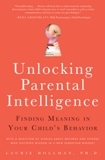
How do you feel when something you want to happen, doesn't pan out?
How do you feel when something you thought would happen, didn't occur?
Do you fly off the handle impulsively, feel frustrated, distressed, or sad?
Do you take it out on others without realizing it, give up in frustration -- or find a way to make it work out?
We all have frustrations and disappointment in life.
And children do too.
10 Tips for Parents to Help Kids with Frustrations and Disappointments by Using Parental Intelligence
1.Let your child express their feelings so these emotions don't escalate and build within themselves leading to explosive reactions.
2. Help your child find perspective considering other things they feel proud of despite these frustrations.
3.Help your child appreciate what they do have despite their disappointments.
4.Encourage them to try again instead of dwelling on what they don't achieve the first time.
5.Encourage persistence and vigor in taking on new ventures despite previous letdowns.
6.Discuss how disappointments are opportunities for learning from your mistakes and trying new approaches.
7.Discuss how frustrations can be catalysts for replaying what was done, so new ideas are generated.
8.Help your child accept that self-confidence does not have to be marred by disappointments.
9.Help your child seek resources to learn more about dealing with the frustration by learning from others, googling new information, and reading more about a subject.
10.Show your child how to become more empathic with others who also cope with frustration and disappointment
Example of How Parents Worked Out Their 10-Year-Old's Frustration by Using Parental Intelligence
Parental Intelligence includes listening to your child's feelings and responding to them. Understanding what lies behind the initial frustration or disappointment leads to resolving problems that are masked by the unfortunate event.
A 10-year-old was disappointed that her parents wouldn't be coming to her first baseball game. The father was starting a new job and the mother was a teacher with after-school conferences that coincided with the game. They explained they had to work for those reasons and encouraged their child to discuss her feelings about this. She expressed frustration and sadness.
After the game she admitted to missing them. Seeing other parents increased her sadness. Feeling sadness was the crux of the matter, not just them not being at the game itself. Understanding this, her parents thought long and hard about how to prevent sadness being linked with the fun of the athletic pursuit. During the discussion they decided all together that the parents would make future arrangements to take turns to come to future games. The 10-year-old felt heard which reduced her frustration and disappointment.
Eventually, the 10-year-old said,
"I can look at the up side now. I'm actually lucky in a way I didn't know could happen. Some kids don't get to talk to their parents when they are upset. We've worked the problem out. I still feel sad other parents were at the game and mine weren't but next time will be different. The most important thing is I know how much I missed you and I know you love me. It's surprising to say this, but thanks!"
Because the parents used their Parental Intelligence, they deepened their relationship with their child, an unexpected gain from a missed baseball game.

Laurie Hollman, Ph.D. is a psychoanalyst with a new book, Unlocking Parental Intelligence: Finding Meaning in Your Child's Behavior, now on amazon.
This post was first viewed on Moms Magazine.